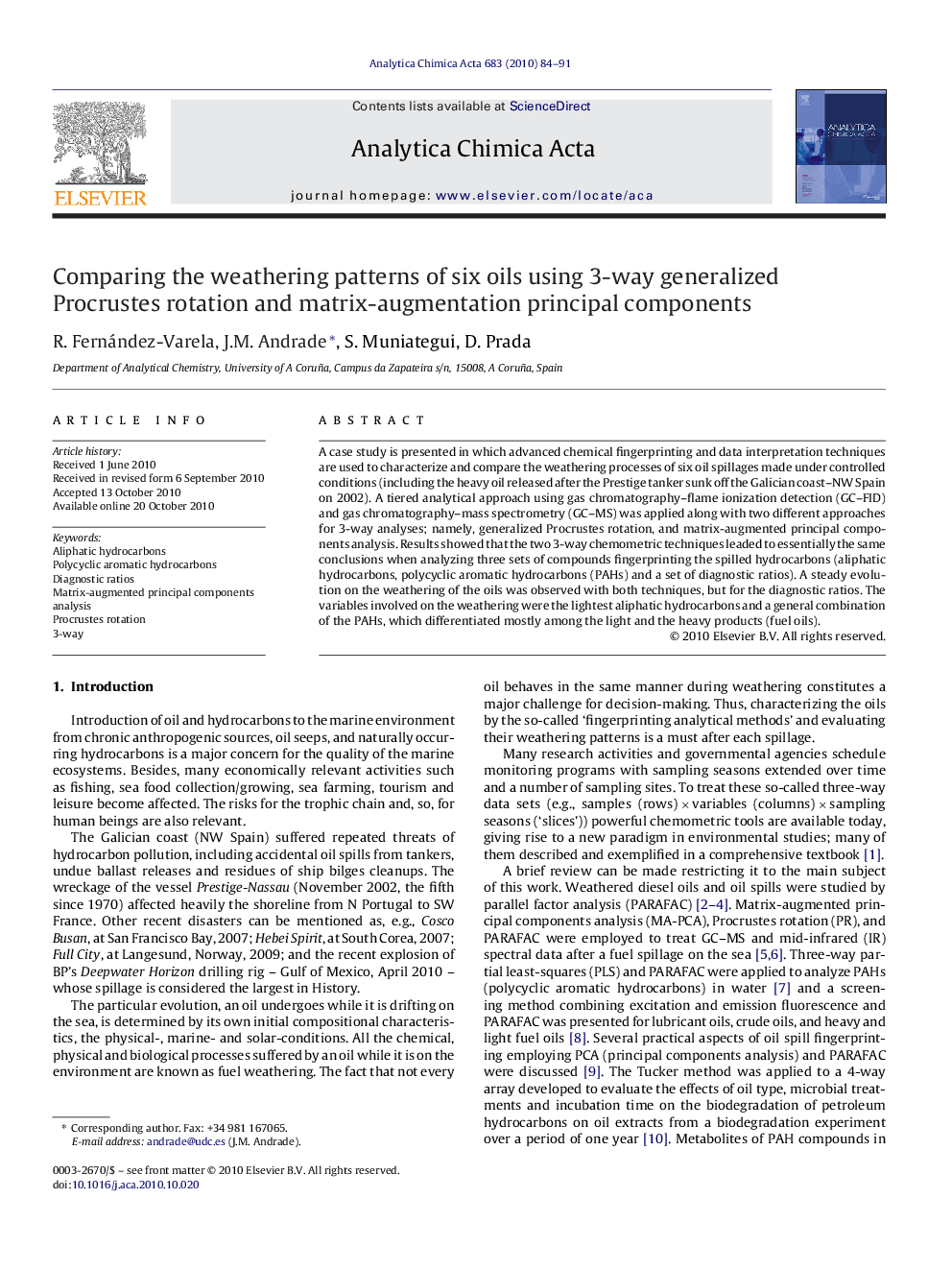| Article ID | Journal | Published Year | Pages | File Type |
|---|---|---|---|---|
| 1167860 | Analytica Chimica Acta | 2010 | 8 Pages |
A case study is presented in which advanced chemical fingerprinting and data interpretation techniques are used to characterize and compare the weathering processes of six oil spillages made under controlled conditions (including the heavy oil released after the Prestige tanker sunk off the Galician coast–NW Spain on 2002). A tiered analytical approach using gas chromatography–flame ionization detection (GC–FID) and gas chromatography–mass spectrometry (GC–MS) was applied along with two different approaches for 3-way analyses; namely, generalized Procrustes rotation, and matrix-augmented principal components analysis. Results showed that the two 3-way chemometric techniques leaded to essentially the same conclusions when analyzing three sets of compounds fingerprinting the spilled hydrocarbons (aliphatic hydrocarbons, polycyclic aromatic hydrocarbons (PAHs) and a set of diagnostic ratios). A steady evolution on the weathering of the oils was observed with both techniques, but for the diagnostic ratios. The variables involved on the weathering were the lightest aliphatic hydrocarbons and a general combination of the PAHs, which differentiated mostly among the light and the heavy products (fuel oils).
